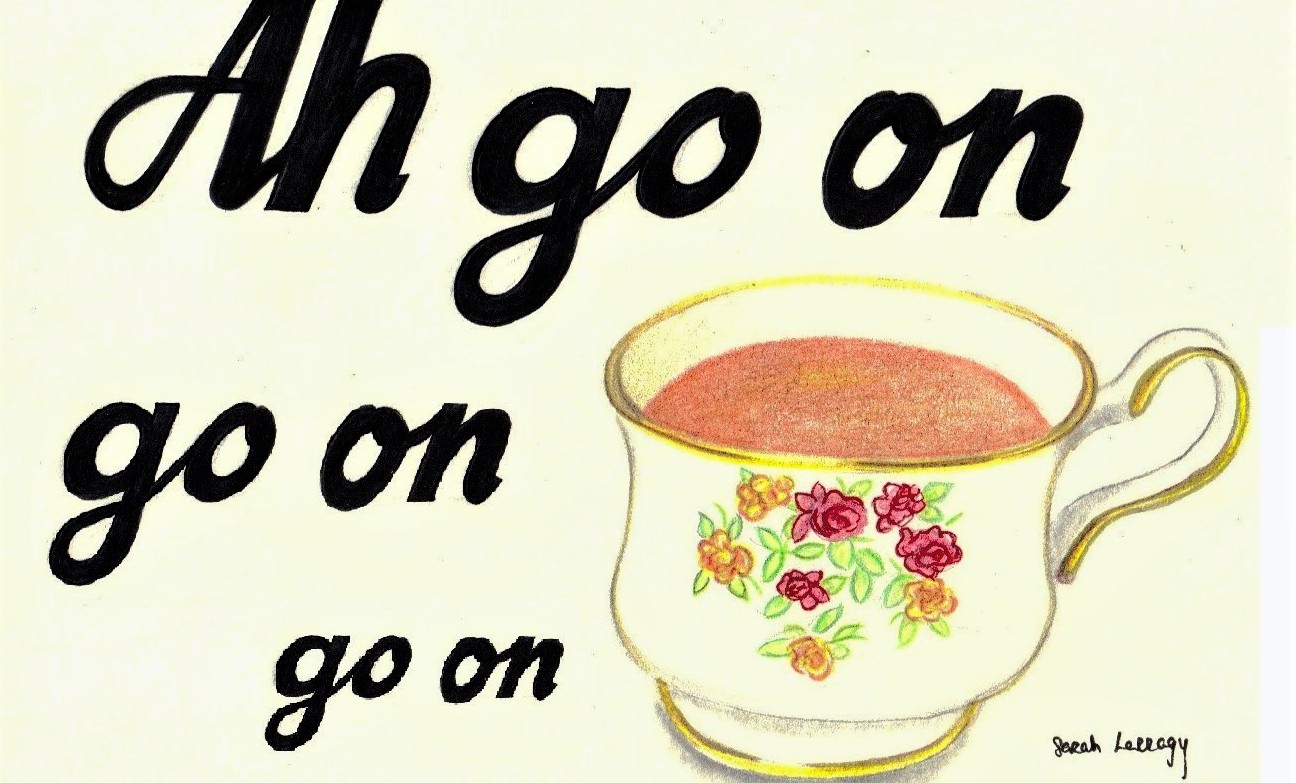Ireland regularly trumps all other nations in lists published regarding “friendly” or “welcoming” countries. Are we truly deserving of this international reputation or is there another reason behind our amiability? To take a cynical view, it may be that we are simply masters of linguistic politeness!
Linguistic politeness in a nutshell
Linguistic politeness often concerns the social interactive skills that we use in order to ensure that all participants of a conversation feel affirmed. How is this related to Ireland’s reputation? Well, in relation to the Irish-English dialect, negative politeness is particularly prevalent.
This is politeness which intends to lessen the burden on the listener and is carried out in many forms including rewording requests to minimise the burden and using indirect speech. A corpus is an accumulation of conversations used to gain information on the speaking habits of the country’s speakers.
The Irish corpus, in relation to Irish-English, shows that the use of statements with the intent of minimising the imposition are very common in the conversations which were compiled.
Examples used in a hospital setting included: Now, if you could just “pop” up here. Now, if you could just “slip” this on. Instead of directly giving the patient orders, the nurse is minimising the request. Responses such as “no bother” or “it’s grand” also lessen the guilt or burden on the speaker who is requesting the action.
These examples as well as other minimising phrases such as “it’s only a bit wet” and “not too expensive” are so common, that they don’t qualify as a personal way of speaking, because Irish-English speakers have communally grown an affinity to these catchphrases. But what is the reasoning behind this usage?
A display of empathy or a form of manipulation?
A reason which is most widely recognised is that we are simply a friendly and empathetic nation. It is used to make the recipient “feel better” about themselves. The use of negative politeness can be seen as an attempt to engage with a fellow human being and comes from a place of kindness.
In essence the language use and common phrases of the country have adapted to the culture and characteristics of its inhabitants.
Although this may be a conscious or unconscious decision, the effects remain the same: all participants of the conversation are left feeling better about the imposition that just happened. This is a more positive spin on the findings, but an alternative reason may be that negative politeness is used as a form of manipulation.
Undoubtedly, when we minimise the imposition on the listener this in turn may work in our favour.
For instance, if the speaker were to simply demand that someone “get my weekly groceries in the shop” – as opposed to politely asking “would you mind, if you’re ok with it, popping into the shop for me for a few things? Now don’t put yourself out, and it’s no bother if you can’t” – the receiver will come away with different feelings.
It is apparent that the second request is one that the recipient is more likely to comply with. The use of negative politeness has made the request seem more empathetic towards the listener and at the same time seems to lessens the burden. There is no doubt that the person requesting the groceries has done so in order to get what they want.
This shows the power that word choice has on the recipient, as well as the action which takes place afterwards.
Are these methods of speaking, which are embedded into the Irish-English dialect, a means of “getting by” without us even realising? Not only does it serve as a tool for manipulation, but it also presents the speaker as a nicer person, which perhaps will work in their favour in the future.
This tactic may be used in any given circumstance, from idle chitchat to a more pivotal social interaction such as a business deal or a political negotiation. It may be argued that this is the reason that negative politeness is particularly prevalent among the Irish- English dialect.
Perhaps it comes from a biased perspective, but I do think that there is a receptive and friendly nature to the Irish-English dialect which shows a willingness to engage with each other.
And the negative politeness comes from a compassionate place, while at the same time a sprinkling of manipulation seeps through now and then just to make life a bit easier.
Illustration by Sarah Larragy







